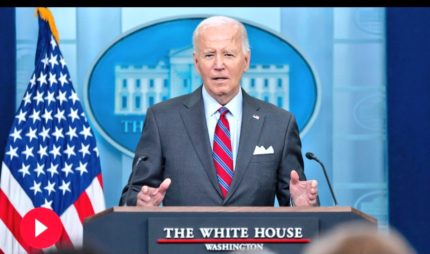President Joe Biden has commuted the sentences of nearly 1,500 non-violent offenders, marking the largest single-day act of clemency in American history. This initiative underscores the administration’s commitment to criminal justice reform and addressing longstanding sentencing disparities. The president’s decision builds on his campaign promises to create a more equitable justice system.
President Joe Biden emphasized the importance of second chances, stating, “America was built on the promise of possibility and second chances.” This sweeping action seeks to rectify the harsh penalties of outdated policies, especially for those convicted of non-violent offenses. The White House highlighted the rehabilitation efforts of those receiving clemency, noting that many have already demonstrated a strong commitment to positive community contributions.
Pardons for 39 Individuals: Stories of Redemption
In addition to the commutations, President Joe Biden announced pardons for 39 other individuals, many of whom have compelling stories of rehabilitation and service. Among them is a military veteran who volunteers at a local church and a nurse actively involved in disaster relief efforts. These pardons reflect the administration’s emphasis on recognizing personal growth and societal contributions.
“These individuals have shown remorse and made significant efforts to turn their lives around,” the president remarked. The pardons serve as a testament to President Joe Biden’s belief in redemption and the potential for individuals to overcome past mistakes, contributing positively to their communities.
Addressing Sentencing Disparities and Outdated Laws
A significant motivator behind this clemency effort is addressing the disparities in sentencing under older policies. President Joe Biden explained that many of those receiving commutations would have faced lighter penalties if convicted under today’s laws. This decision aligns with the administration’s broader push for fairness in the criminal justice system.
The move also highlights the urgent need to reform outdated drug laws, which have disproportionately impacted marginalized communities. President Joe Biden’s actions aim to restore fairness and trust in the justice system by correcting the injustices of the past.
Rehabilitation and Community Safety as Key Criteria
The White House stressed that all 1,500 individuals receiving sentence commutations had been on home confinement for at least a year and demonstrated successful rehabilitation. These individuals have shown a strong commitment to reintegrating into society and making their communities safer.
This initiative highlights the administration’s focus on balancing justice with public safety. By granting clemency to those who have proven their commitment to positive change, the administration reinforces the belief that people deserve opportunities for redemption and reintegration.
A Presidential Record in Clemency Actions
With this historic announcement, President Joe Biden has granted more sentence commutations at this point in his presidency than his recent predecessors during their first terms. This record underscores his dedication to addressing systemic issues within the criminal justice system and providing relief to those impacted by its inequities.
The White House noted that this decision is part of a broader effort to reform sentencing policies, reduce prison overcrowding, and promote fairness. By focusing on non-violent offenders, President Joe Biden’s clemency actions set a new standard for presidential mercy.
Public Reaction and Future Implications
The announcement has drawn widespread attention, with many advocates applauding the decision as a meaningful step toward criminal justice reform. Organizations focused on sentencing reform and rehabilitation praised the administration for prioritizing equity and second chances.
However, critics argue that broader legislative changes are needed to prevent future injustices. As the conversation around sentencing reform continues, President Joe Biden’s historic clemency move may serve as a catalyst for further systemic changes, highlighting the potential for executive actions to reshape the justice landscape.














